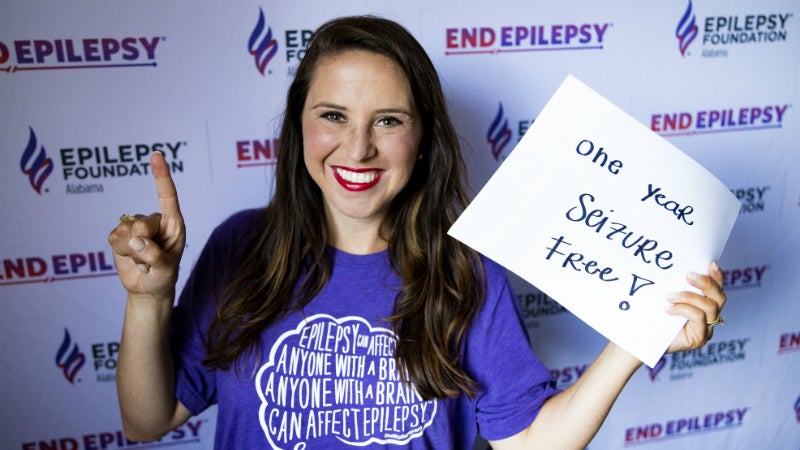Epilepsy Foundation Alabama director celebrates being one year seizure free
Published 10:44 am Monday, April 20, 2020
|
Getting your Trinity Audio player ready...
|
FROM STAFF REPORTS
Today, Epilepsy Foundation Alabama Executive Director Sara Franklin celebrates being one year seizure free.
Her first seizure was in August of 2018 at the age of 30, and seizure activity continued until April 20, 2019.
She was hired to be the executive director of Epilepsy Foundation Alabama later in the fall of 2019.
“I could have never imagined the way the seizures completely changed my life,” Franklin said. “Since my onset of epilepsy, I’ve learned that 3.4 million people in the U.S. live with active epilepsy, including more than 54,000 in Alabama. I hope my willingness to share my story encourages other people with epilepsy in our state, who are often very familiar with the type of isolation situation we are all in right now.”
According to Alabama state law, a person who had a seizure within the last six months has his or her driver’s license suspended, which often causes challenges in a state without readily-accessible mass transportation options.
One in 26 people will develop epilepsy at some point in their lives, and more people have epilepsy than Parkinson’s disease, multiple sclerosis and cerebral palsy, combined.
Epilepsy has a wide range of causes, there are a number of “types” of seizures, and the severity of impact can be very different for each person.
The majority of people with epilepsy have seizures that can be controlled with medicine, while some people achieve seizure control through surgery or devices. However, at least three out of 10 people with epilepsy continue to have seizures because available treatments do not completely control their seizures.
“This is why the fight to ‘End Epilepsy’ is important to me and why I share my story,” said Franklin. “I truly believe in the work being done by the Epilepsy Foundation, especially as it relates to research and seizure control.”
Epilepsy, the most common serious brain disorder worldwide, is the underlying tendency of the brain to produce seizures which are sudden abnormal bursts of electrical energy that disrupt brain functions.
According to the Centers for Disease Control and Prevention (CDC), more than 54,000 people in Alabama are living with epilepsy and seizures, including more than 7,500 children. Over a lifetime, one in 10 people will have a seizure, and one in 26 will be diagnosed with epilepsy.
For more information about Epilepsy Foundation Alabama, visit EpilepsyAlabama.org.
For more information about COVID-19 and epilepsy, visit EpilepsyAlabama.org/covid-19-epilepsy-fact-sheet/.










